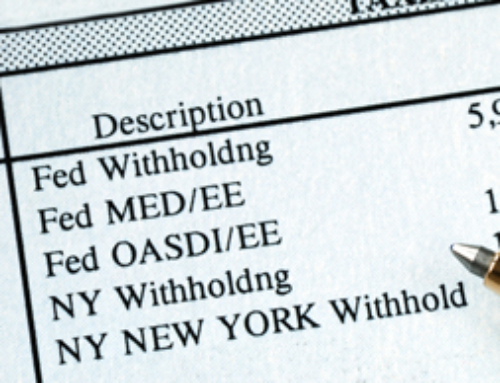 The $8,000 first-time home buyer tax credit was included in the American Recovery and Reinvestment Act of 2009. It was widely seen as a terrific opportunity for Americans who might never otherwise have the money for a down payment to get into their own homes.
The $8,000 first-time home buyer tax credit was included in the American Recovery and Reinvestment Act of 2009. It was widely seen as a terrific opportunity for Americans who might never otherwise have the money for a down payment to get into their own homes.
Unfortunately, the first-time home buyer tax credit program quickly became a bureaucratic nightmare. The IRS was unprepared for the volume of paperwork flooding into their service centers.
Some 1.8 million home buyer refund tax returns were processed in one year, causing a tremendous delay in processing tax credits and issuing checks (or making direct deposits).
How long will you wait for your home buyer tax credit?
Assuming you have included all the required documents in your printed tax return and the IRS has no questions, here’s how long IRS spokesman Eric Smith says you’ll wait for your home buyer tax credit cash:
- Current 2009 Form 1040 (paper return only; the IRS will not allow anyone to use an efile return to collect a home buyer tax credit): Refunds will be delayed only if information is incomplete, requiring the IRS to correspond with you.
- Amended 2008 tax return (Form 1040X): Expect to wait twelve to sixteen weeks.
- Amended 2009 tax return (Form 1040X): Expect to wait twelve to sixteen weeks.
That doesn’t sound too bad. Unfortunately, it’s not the reality we are seeing in our office or hearing from our colleagues.
When you file your regular 2009 tax return containing a Form 5405 First-Time Homebuyer Credit, the IRS will send your regular refund immediately. Your home buyer tax credit refund will be held for several weeks until your paperwork is verified. With no questions from the IRS, the refund will appear in six weeks.
But IRS staff seem to be rejecting tax returns quickly, some for no logical reason. Many taxpayers have to then resubmit their tax returns. Taxpayers are frightened, thinking they are being investigated.
Here are seven ways to avoid the home buyer tax credit rejection trap:
- Include ALL proofs of your home purchase. This will include a HUD-1 Form, which is the settlement statement from the closing. The title or escrow company should provide you with this form. You may also need to provide a copy of the executed purchase contract.
- If you’re not buying a conventional home, explain why there is no HUD-1 Form. Motor homes, mobile homes, manufactured homes, boats, and co-ops may all use different purchase forms, not the traditional escrow form. Ask the title or escrow company to provide you with the necessary documents.
- Include a copy of Form 8822 Change of Address. The IRS is sending rejections and correspondence to the former address, even when the new address is clearly on the amended return and the change of address box is checked. It’s unclear to me or my staff why this is happening, but just work around it.
- Provide definitive proof that you are a qualified buyer. Include proof that you have moved into the new home, such as a copy of your new driver’s license, voter registration card, or bank statement. For those applying for the $6,500 long-term homeowner’s tax credit, include proof that you owned and lived in your home for at least five years out of the past eight. Examples of proof include property tax statements, insurance policies, and voter registration cards.
- If any detail or document is vague, include a detailed explanation. Do not make the IRS examiner guess at what your information or documentation intends to show.
- Follow up regularly. If you have heard nothing from the IRS, call 800-829-1040 four weeks after you file to make sure the IRS has not lost your tax return. Then follow up every two weeks until you get confirmation that your file is in processing.
- Don’t take no for the final answer. If your return is rejected and the IRS is wrong in rejecting it, immediately resend your tax return with a cover letter that explains why you are eligible for a home buyer tax credit, all the correct documentation, and a request to be placed at the head of the queue, since the rejection was an IRS error.
Incidentally, do not call the Taxpayer Advocate Service (TAS) for help if you are experiencing odd delays. Everyone else is in the same boat. The TAS cannot help you.
Eva Rosenberg, EA, is the publisher of TaxMama.com®, where your tax questions are answered. She teaches tax professionals how to represent you when you have tax problems. She is the author of several books and e-books, including Small Business Taxes Made Easy. Follow her on Twitter: @TaxMama






